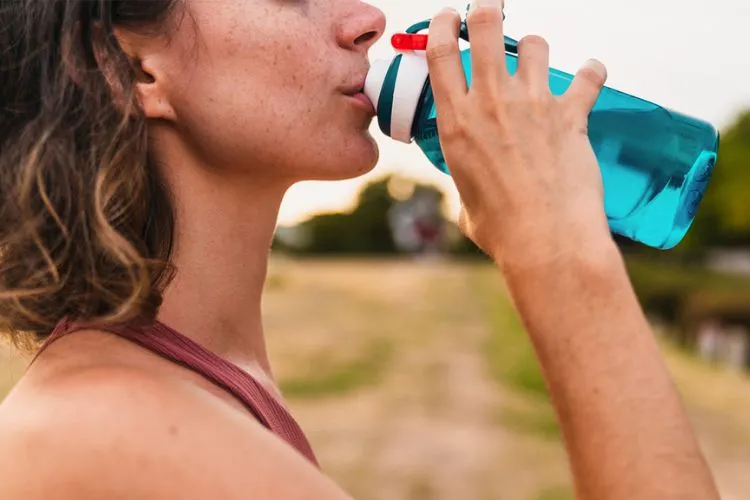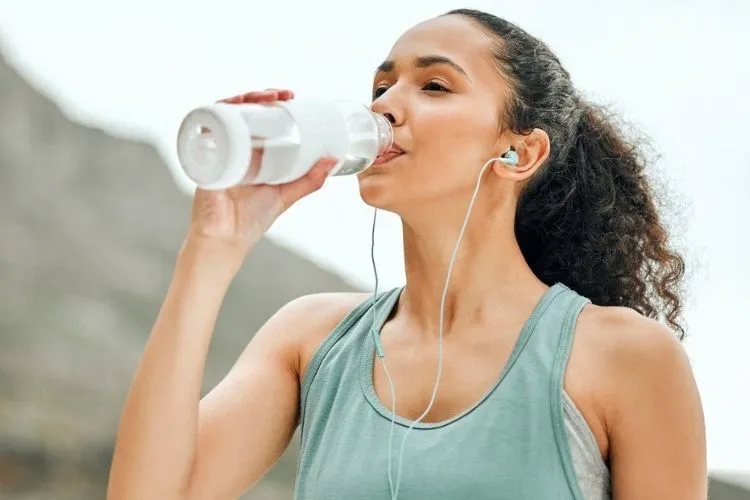Drinking water is essential for maintaining physical health, but its benefits extend far beyond just quenching our thirst.
Recent discussions have turned towards how hydration affects our brain function, prompting the question: does drinking water make you smarter?
This article delves into the intricate relationship between water consumption and cognitive performance, backed by scientific research and practical advice.

💦 The Importance of Hydration
Water plays a critical role in our bodies. It helps regulate body temperature, maintain blood pressure, and transport nutrients and waste products.
But when we fail to consume enough water, dehydration takes a toll on our physical health, leading to symptoms like headaches, fatigue, dizziness, and in severe cases, kidney problems.
💦Hydration and Brain Health
Our brain is highly sensitive to hydration levels. Dehydration affects the brain’s ability to function properly, impacting cognitive functions such as concentration, memory, and mood.
Studies show that even mild dehydration can impair cognitive performance, making tasks that require attention, short-term memory, or motor skills more challenging.
💦Does Drinking Water Make You Smarter?
While drinking water may not directly increase your IQ, staying well-hydrated is linked to improved cognitive functions.
Well-hydrated individuals often experience better concentration, enhanced memory, and quicker decision-making skills.
These benefits support the idea that adequate water consumption could indirectly make us ‘smarter’ by enabling our brains to operate at their best.
💦Optimal Hydration: How Much Water Do You Need?

The amount of water needed varies among individuals, influenced by factors such as weight, activity level, and environmental conditions.
A general guideline is to drink at least 8 glasses of water a day, but this can differ based on personal needs.
Recognizing signs of adequate hydration, such as rarely feeling thirsty and producing light-colored urine, are good practices.
💦Tips for Staying Hydrated
To maintain optimal hydration, consider starting your day with a glass of water and continue drinking regularly.
Incorporating water-rich foods like fruits and vegetables into your diet can also help. For those who find drinking water challenging, setting reminders or tracking intake using apps can be useful strategies.
💦Other Smart Habits to Boost Brain Power
In addition to hydration, nourishing your body with a balanced diet, engaging in regular physical activity, ensuring quality sleep, and managing stress are crucial for maintaining cognitive health. These habits work together to support brain function and improve overall well-being.
💦Challenges and Considerations
It’s important to strike a balance to avoid over-hydration, which can lead to water intoxication. Special populations, like athletes or the elderly, may have different hydration needs and should consult healthcare professionals for personalized advice.
💦Pro Tips

Creating a routine that includes regular water breaks can help ensure consistent hydration. Monitoring your body’s indications, like dry mouth or fatigue, can also provide clues about your hydration status.
Finally, flavoring your water with natural ingredients can make it more appealing, encouraging you to drink more without resorting to sugary beverages.
Understanding the link between hydration and brain function empowers you to make informed decisions about your health.
By recognizing the importance of water in maintaining cognitive performance, you can adopt habits that not only keep you hydrated but also support your mental sharpness and overall well-being.
💦Debunking Hydration Myths
Hydration is surrounded by myths and misconceptions, particularly regarding its influence on brain function.
One prevalent myth is that only water consumption can prevent dehydration and enhance cognitive abilities, ignoring the fact that fruits, vegetables, and other beverages also contribute significantly to our hydration status.
Another common misconception is the belief in the “8×8 rule,” which prescribes eight 8-ounce glasses of water daily for everyone, disregarding individual differences in weight, activity level, and environmental factors.
Additionally, there’s a notion that by the time you feel thirsty, you are already severely dehydrated. While thirst is indeed a late indicator, mild dehydration can be easily addressed without drastic cognitive decline.
Clarifying these myths encourages a more personalized and holistic approach to hydration, emphasizing its importance for maintaining optimal brain function and overall health.
💦Hydration Strategies for Different Age Groups
Hydration needs evolve with age, requiring tailored strategies for different life stages. For children, who may not recognize their thirst, structured water breaks during school and physical activity are crucial.
Parents and educators should encourage regular sips and provide easy access to water.
Adolescents may prefer sugary drinks, so education on healthier hydration choices is key.
As adults juggle busy schedules, carrying a reusable water bottle and leveraging technology to track intake can help maintain hydration.
For seniors, diminished thirst sensation is a challenge; they should be reminded to drink regularly, and caretakers could monitor their fluid consumption.
No matter the age, understanding and adapting to each group’s specific hydration needs is essential for cognitive function and overall well-being.
💦The Psychological Effects of Hydration on Brain Function
Hydration significantly impacts psychological health. Adequate water intake helps regulate mood and emotions, reducing stress and anxiety levels.

When hydrated, neurotransmitter production is optimized, facilitating better mental clarity and emotional stability.
Consequently, staying hydrated can enhance resilience, improving overall cognitive and psychological well-being.
💦 Frequently Asked Questions (FAQs)
How quickly does dehydration affect cognition?
Dehydration can impact cognitive functions within hours, depending on the severity and individual sensitivity.
Can drinking water improve your IQ?
There’s no direct evidence that water consumption boosts IQ, but it can enhance cognitive performance, leading to better learning and problem-solving abilities.
Does the temperature of the water matter for cognitive benefits?
The temperature of the water has not been shown to directly impact cognitive benefits, but drinking water at a comfortable temperature may encourage regular consumption.
Are there specific times of day when drinking water is more beneficial for brain function?
Drinking water throughout the day is essential, but hydrating first thing in the morning can kickstart your brain after a night’s rest.
How can I tell if I’m hydrated enough for optimal cognitive performance?
Signs of proper hydration include minimal thirst and light-colored urine. Listening to your body and staying attuned to these signals can guide your intake.
Conclusion:
Maintaining proper hydration is a simple yet effective way to support your cognitive function and, indirectly, become ‘smarter.’
By paying attention to your body’s hydration needs and adopting healthy lifestyle habits, you can enhance your problem-solving skills, memory, and focus.

Devon Shorts, a seasoned expert with over a decade of experience in water safety, shares valuable insights on this blog “Aqua Safety Plus”. Trust his expertise to keep your water clean and your family safe.
